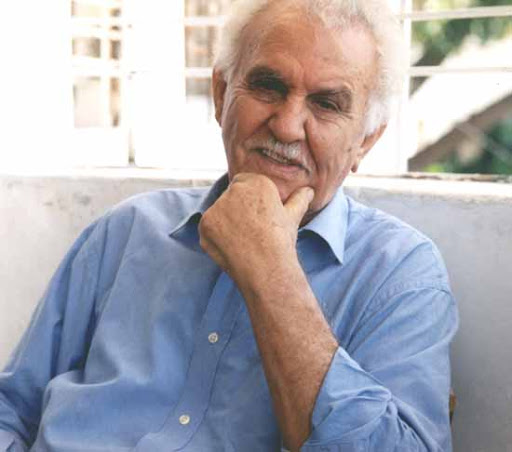Issa El Saieh, the renowned orchestra leader and influential gallery owner, has passed away at the age of 85 in Port-au-Prince, Haiti. He is survived by his two children, Manno and Babette, and three grandchildren, leaving behind a legacy that touched various facets of Haitian culture.
Issa El Saieh carved out a legendary status in two significant ways. During the 1940s and 1950s, he led a big band that forged a new path in Haitian music by blending local sounds with jazz and Afro-Cuban rhythms. The band, which produced several records under Issa’s label also named La Belle Créole, became a pivotal platform for emerging Haitian talent. Musicians like alto saxophonist Raoul Guillaume and singers Guy Durosier and Joe Trouillot, among others, found their early footing through performances with Issa’s orchestra. Despite his proficiency with the tenor sax and clarinet, Issa’s true gift lay in his organizational and arranging skills, often inviting renowned musicians such as Budd Johnson and Billy Taylor to collaborate with his band.
In addition to his musical contributions, Issa opened what became the most famous art gallery in Haiti during the 1950s. His gallery was a hub for the discovery and promotion of Haitian naïve artists like Jacques Enguérrand Gourgue and André Pierre. Known for his fair pricing and integrity, Issa played a pivotal role in bringing Haitian art to a global audience. His personal collection is revered as one of the finest globally.
Issa’s tenure as manager of the Grand Hôtel Oloffson in the 1960s further cemented his status as a cultural icon. It was here that he encountered notable figures like the British writer Graham Greene, who immortalized him in his novel “The Comedians.”
Despite facing adversity, including a brief imprisonment during Papa Doc’s regime in the mid-sixties, Issa’s spirit remained unbroken. His gallery continued to be a vibrant cultural gathering spot in Port-au-Prince, frequented by artists, journalists, and tourists alike.
Even as Alzheimer’s disease clouded his final years, Issa’s legacy as a guardian of Haitian culture remained luminous. His life’s work bridged worlds, connected cultures, and enriched many lives. As friends and admirers mourn his passing, they recall a man who was a repository of stories, a nurturer of talent, and a beacon of joy in the Haitian cultural landscape. Issa El Saieh’s impact on music and art will resonate well beyond his years, marking the end of an era but leaving an indelible mark on Haiti’s cultural history.
